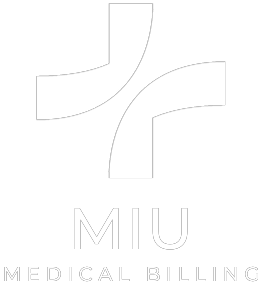Introduction: Navigating the Complex World of Health Insurance Billing
Medical insurance billing serves as the primary foundation of hospitals’ monetary procedures. How to bill health insurance effectively can easily enhance your profits and manage your medical practice. We describe a detailed strategic approach to different diseases, symptoms, treatments, and billing statements for health insurance billing practices. Applying these techniques will significantly improve your revenue cycle management and guarantee excellent reimbursement for healthcare facility services.
1. Understanding the Fundamentals of Health Insurance Billing

Medical billing in health insurance is a coordinated process of medical coding, submitting claims, and procedural actions that follow. Sound medical billing, especially in health insurance, means understanding the difference between the insurance plans and the amount of coverage or the reimbursements allowed under those policies. Medical practitioners should always know the current billing regulations and codes so they can bill correctly. For this reason, when you get it right, health insurance billing forms the genesis of revenue increment and smooth running of practices in the medical field.
2. Streamlining the Patient Registration Process
Health insurance billing initiatives should be efficient from the patient journey’s beginning point. Ensuring enhancements in patient registration means these systems receive the correct demographic and insurance details, which, in turn, minimizes claim rejections and delays. Teach your workers always to check your clients’ insurance status and eligibility for insurance services. Employ electronic gadgets and personalized patient care websites where data can be easily given and retrieved. It would be best to remember that getting your patient registration right lays the foundation for medical billing and enhanced revenues.
3. Mastering Medical Coding for Accurate Claims
Integrated medical coding sets up the basis of appropriate billing in health insurance. Ensure all your coding staff continue to be knowledgeable regarding updates on the ICD-10 and CPT codes. Schedule coding audits at a specific time and frequency to help eradicate coding mistakes. It should establish a plan to invest in better coding software that may be compatible with the EHR system. Through improved medical coding, you will reduce rejected claims and increase the efficiency of health insurance billing, increasing your revenue by getting paid faster.
4. Navigating Common Diseases and Treatments in Billing
Health insurance billing generally includes all kinds of diseases and treatments for which there will be different coding and documentation procedures. Whether it is Diabetes, Hypertension, or any other disease, or an acute event like a heart attack or an Appendectomy, understanding the billing differences for different medical events is essential. Ensure you know the current treatment modalities and how they are billed. Make it a practice to update your charge master to incorporate new procedures and medications. There are all ways to master the details of billing for disease-specific health insurance and guarantee full reimbursement for all services provided.
5. Addressing Symptoms and Diagnostic Procedures in Claims
Charting a patient’s symptoms and procedures is crucial in health insurance billing. Educate your clinical staff to write detailed descriptions of the patient’s symptoms, physical assessments, and diagnostic reports. Integrate a sound CDI program that would help to promote higher quality and increased specificity of the medical documentation. Ensure all the clinical diagnostics are coded to the different blood tests, MRI, etc. This article will demonstrate how identifying and documenting the symptoms and diagnosis in your health insurance billing will enhance medical necessity and capture the maximum possible revenue.
6. Leveraging Technology for Efficient Health Insurance Billing
The digital era makes technology important in improving health insurance billing. Ensure you purchase an effective practice management system that works well with the EHR and billing system. Conduct the claim scrubbing activity before submission by applying automated tools with which errors may be detected and corrected when they are still not Born. Also, electronic remittance advice (ERA) and electronic funds transfer (EFT) should be implemented to automate the posting of payments and eliminate differences. Technological solutions will make medical billing more effective and less prone to mistakes, enhancing your company’s cash flow and increasing revenues.
7. Implementing Effective Denial Management Strategies

Nevertheless, it is possible to encounter the challenges of claim denials in health insurance billing. A strong denial management plan must be implemented to reduce revenue losses and maximize reimbursements. Develop denial patterns to pinpoint the causes of the denial and correct it. Adapt your billing department to critical strategies for appealing denials, and equip your billing staff to fight unfair denials. Outsourcing complex appeals to specialized denial management services will help streamline the process. If claim denials are dealt with in advance, you will get back your lost revenue and enhance the functionality of your medical billing.
Conclusion: Maximizing Revenue Through Optimized Health Insurance Billing
Health insurance billing is a significant factor in identifying operations and revenue improvement in healthcare practice. From automating the registration of patients to adopting the latest technology to improve the billing process, the following strategies highlighted in this guide will improve the billing processes as well as the financial performance of your facility. Do not forget that health insurance billing is dynamic, and doctors, nurses, insurance personnel, and other health practitioners always learn something new throughout their professional activities. Learn about changes occurring in your field, train your workers, and perform audits of your billing activities to achieve optimal performance. Focusing on outstanding work in billing will provide financial stability for your practice. You will be able to go on offering your patients quality care.




